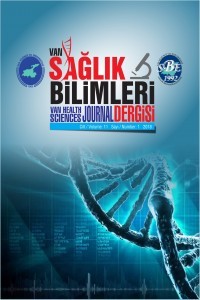Comparison of the Efficacy of FOLFIRI and Paclitaxel Chemotherapy Regimens in the Second Line Treatment of Metastatic Gastric Cancer
Introduction: Although the incidence of gastric cancer has shown a significant decrease over the years, it remains the fourth leading cause of cancer-related deaths, resulting in more than 700,000 annual deaths worldwide. The main goal of metastatic gastric cancer treatment is to alleviate symptoms and, if feasible, improve survival. The purpose of our study was to compare the effectiveness of two chemotherapy regimens, FOLFIRI and paclitaxel, which are commonly used in the second-line treatment of metastatic gastric cancer.
Material and Method: Patients over the age of 18 with a diagnosis of metastatic gastric carcinoma who were treated with either FOLFIRI or paclitaxel as second-line therapy were enrolled in our study. These two treatment groups were compared in terms of overall and progression-free survival.
Results: A total of 99 patients were included. 56 (56.6%) patients had received FOLFIRI and 43 (43.3%) had received paclitaxel. The median overall survival for the entire cohort was 9 months: 10 months for FOLFIRI and 8 months for paclitaxel, with no statistically significant difference between them. In multivariate analysis, Eastern Cooperative Oncology Group (ECOG) performance status, body mass index, and number of chemotherapy cycles were identified as independent prognostic factors.
Conclusion: We compared two commonly used regimens in the second-line treatment of metastatic gastric cancer, FOLFIRI and paclitaxel, in terms of overall and progression-free survival. There was no statistically significant difference between the two regimens. Both regimens can be considered as reasonable second-line treatment options. According to the results of our study, the choice of chemotherapy for second-line treatment should be made on an individual basis, considering factors such as the treatment received in the first-line, side effects, medication cost, and accessibility.
Anahtar Kelimeler:
Metastatic gastric cancer, second-line chemotherapy, prognostic factor
___
- Catalano V, Graziano F, Santini D, D'Emidio S, Baldelli AM, Rossi D, et al. (2008). Second-line chemotherapy for patients with advanced gastric cancer: who may benefit? British Journal of Cancer, 99(9), 1402-1407.
- D'Angelica M, Gonen M, Brennan MF, Turnbull AD, Bains M, Karpeh MS. (2004). Patterns of initial recurrence in completely resected gastric adenocarcinoma. Annals of Surgery, 240(5), 808-816.
- Ford HE, Marshall A, Bridgewater JA, Janowitz T, Coxon FY, Wadsley J et al. (2014). Docetaxel versus active symptom control for refractory oesophagogastric adenocarcinoma (COUGAR-02): an open-label, phase 3 randomised controlled trial. The Lancet Oncology, 15(1), 78-86.
- Fuchs CS, Tomasek J, Yong CJ, Dumitru F, Passalacqua R, Goswami C, et al. (2014). Ramucirumab monotherapy for previously treated advanced gastric or gastro-oesophageal junction adenocarcinoma (REGARD): an international, randomised, multicentre, placebo-controlled, phase 3 trial. The Lancet, 383(9911), 31-39.
- Hironaka S, Ueda S, Yasui H, Nishina T, Tsuda M, Tsumura T et al. (2013). Randomized, open-label, phase III study comparing irinotecan with paclitaxel in patients with advanced gastric cancer without severe peritoneal metastasis after failure of prior combination chemotherapy using fluoropyrimidine plus platinum: WJOG 4007 trial. Journal of Clinical Oncology 31(35), 4438-4444. Ji SH, Lim DH, Yi SY, Kim HS, Jun HJ, Kim KH et al. (2009). A retrospective analysis of second-line chemotherapy in patients with advanced gastric cancer. BMC Cancer, 9, 110.
- Karaman E, Alandag C, Yuce E. (2022). Effect of adjuvant chemotherapy/ chemoradiotherapy on disease-free survival in gastric cancer. Eurasian Journal of Medical Investigation, 6(4), 497-505.
- Lordick F, Carneiro F, Cascinu S, Fleitas T, Haustermans K, Piessen G et al. (2022). Gastric cancer: ESMO clinical practice guideline for diagnosis, treatment and follow-up. Annals of Oncology, 33(10), 1005-1020.
- Siegel RL, Miller KD, Wagle NS, Jemal A. (2023). Cancer statistics, 2023. CA: A Cancer Journal for Clinicians, 73(1), 17-48.
- Sung H, Ferlay J, Siegel RL, Laversanne M, Soerjomataram I, Jemal A et al. (2021). Global Cancer Statistics 2020: GLOBOCAN estimates of incidence and mortality worldwide for 36 cancers in 185 countries. CA: A Cancer Journal for Clinicians, 71(3), 209-249.
- Thuss-Patience PC, Kretzschmar A, Bichev D, Deist T, Hinke A, Breithaupt K et al. (2011). Survival advantage for irinotecan versus best supportive care as second-line chemotherapy in gastric cancer--a randomised phase III study of the Arbeitsgemeinschaft Internistische Onkologie (AIO). European Journal of Cancer, 47(15), 2306-2314.
- Tomita Y, Moldovan M, Chang Lee R, Hsieh AH, Townsend A, Price T. (2020). Salvage systemic therapy for advanced gastric and oesophago-gastric junction adenocarcinoma. Cochrane Database of Systematic Reviews, 11(11), Cd012078.
- Wilke H, Muro K, Van Cutsem E, Oh SC, Bodoky G, Shimada Y et al. (2014). Ramucirumab plus paclitaxel versus placebo plus paclitaxel in patients with previously treated advanced gastric or gastro-oesophageal junction adenocarcinoma (RAINBOW): a double-blind, randomised phase 3 trial. The Lancet Oncology, 15(11), 1224-1235.
- Yildirim S, Özveren A. (2023). Second-Line chemotherapy in gastric cancer: a retrospective study. Indian Journal of Surgical Oncology, 14(2), 423-427
- ISSN: 2667-5072
- Başlangıç: 2018
- Yayıncı: Van Yüzüncü Yıl Üniversitesi
Sayıdaki Diğer Makaleler
Yoğun Bakım Ünitelerinde Basınç Yarası Gelişimini Etkileyen Faktörler
Beyza Betül GÜÇLÜ, Semanur ÇELİK, Gonca KARAYAĞIZ MUSLU
Mikrobiyolojik Örneklerden İzole Edilen PseudomonasAeruginosaSuşlarının Antibiyotik Direnç Modelleri
Anne Yaşının Erken Çocukluk Çağı Üzerine Etkilerinin İncelenmesi
Ahmed Galip HALİDİ, Hasan YİLMAZ, Yunus Emre BEYHAN
Farklı Maloklüzyon Gruplarında Ortodontik Tedavi İhtiyacının Belirlenmesi
Çocuklarda Akut Gastroenterit Etkenlerinin Mevsimsel Farklılığı
Muslih ÜRÜN, Gürkan GÜNER, Yasin SEZGİN, Emre UYSAL, Yonca YILMAZ ÜRÜN, Abdullah SAKİN
Mandibular Ramusun Ewing Sarkomu: Olgu Sunumu
